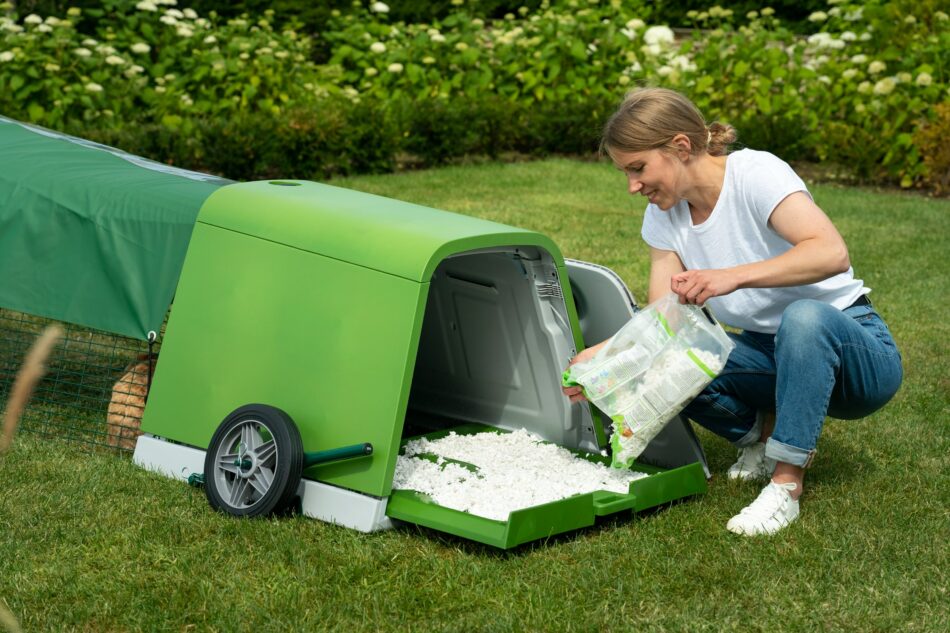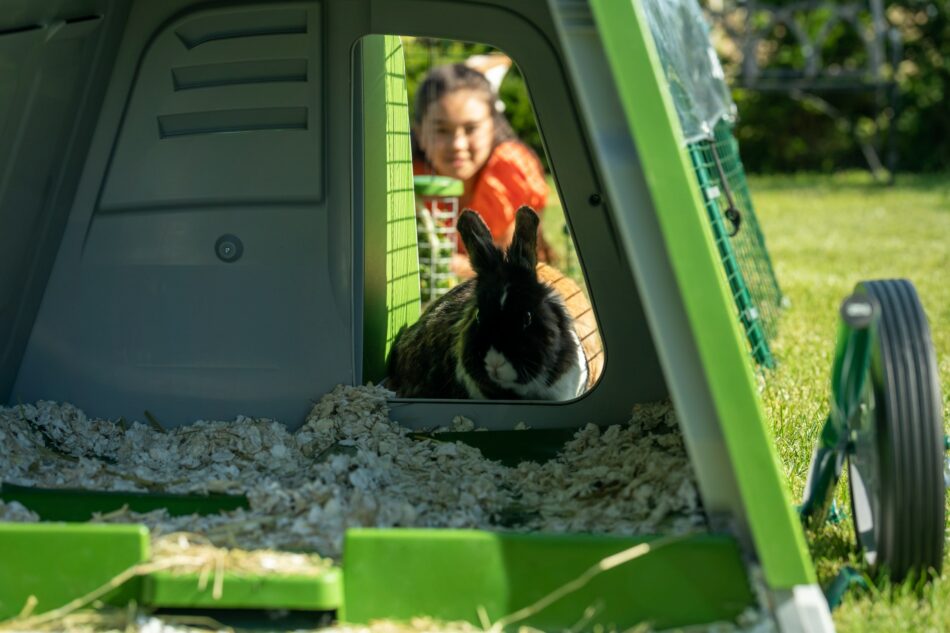Everything you need to know about rabbit poo
Did you know that you can tell a lot about your rabbits’ health by looking at their droppings? Rabbit faeces should be very predictable in size, colour, and consistency – anything out of the ordinary could be a red flag for owners. We’ll tell you everything you need to know about rabbit poo, and when it might be time to call the vet.
Different types of poo
Rabbits actually produce two types of droppings, so recognizing what’s normal and what’s not can help you identify potential digestive issues with your rabbit.
Fecal pellets
This is what most people think of when you say rabbit poo. They’re small, round balls made up of mostly undigested hay. These droppings are relatively firm and dry, and they shouldn’t emit much of an odour. There will be lots of these to clean, so take the opportunity to see if they look normal. In fact, rabbits can produce between 200-300 faecal pellets every day.
Faecal pellets should be dark green to dark brown in colour. Their texture should be smooth and round, and they shouldn’t stick to the tray or sides of the hutch. Some rabbits may occasionally get a pellet or two stuck in the hair around their tail, but overall their droppings should be firm enough that this is not a common occurrence.
Cecotropes
These are not actually poo, but little balls of nutrition that the rabbits will pick up and eat again. This might not sound appealing, but they’re a vital part of a rabbit’s diet. So, should you see your bunny munching on these, it’s no cause for alarm – they’re doing as nature intended.
Cecotropes are formed in a part of the digestive system called the caecum. After the food moves through the small intestine, it’s separated into digested and undigested food. Food matter that’s been digested and void of nutritional value will go through the large intestine to be eliminated as pellets. Undigested food will be sent through the caecum where plenty of healthy microorganisms and bacteria will break it down into a form that the body will actually be able to digest. The result is cecotropes that the rabbit will eliminate and ingest again.
Most of the time the rabbit will eat the cecotropes as soon as they are eliminated. If you happen to come across these soft and shiny black balls clustered together like a small blackberry – you’ve found a cecotrope that your rabbit might have missed.
Problems with rabbit poo
Check your rabbit’s poo each time you clean the hutch for any new or irregular bowel movements. Examples of unusual faecal pellets include:
- Smaller or harder than usual
- A foul or strong odour
- Different colour
- Strung together with hair
Issues with diet
The main reason for poo-related problems is an unbalanced diet, or sudden change in diet. Make changes toward a balanced bunny diet, but make sure not to make changes too quickly to avoid digestive upset. A balanced diet for a rabbit consists of roughly 90% good-quality hay and a dish of quality pellets. As a treat, you can offer your rabbits small amounts of rabbit-safe fruits and vegetables or leafy greens in a Caddi Rabbit Treat Holder to elevate their snack time. Make sure your rabbits have access to fresh, clean water at all times to help keep their digestion moving.
Like humans, individual rabbits may react differently to different foods. If you notice your rabbit having very hard or fewer than normal faecal pellets, take it back to the basics. If your bunny is able to regulate their digestion on hay and pellets alone, slowly reintroduce supplemental veggies. Leafy greens like lettuce and cabbage are higher in fibre and easiest for them to digest. Fruits and veggies like carrots are high in starch and should only be offered in small amounts no more than a couple of times per week.
Help them with grooming
If you have long-haired rabbits like Lionheads or Angoras, it’s inevitable that they will ingest some fur during grooming – and what goes in, must come out. You may occasionally find your rabbits’ faecal pellets strung together with long strands of hair. If this occurs more often than once or twice a month, you’ll want to groom your rabbits more often. This is especially helpful in the autumn and spring when rabbits shed their seasonal coats.
Diarrhea warrants a call to the vet
Diarrhoea can be very serious in rabbits – especially during the warmer months of the year when flies are attracted to damp and dirty fur. Fly strike in rabbits occurs when fly larvae hatch from eggs laid by flies that are attracted to your rabbit’s soiled fur. This condition can be fatal to rabbits in a matter of days, so it’s important to address diarrhoea quickly. If their belly isn’t back to normal within 24 hours, it’s time to call the veterinarian.
Diarrhoea can be caused by a number of things, including:
- Dietary changes or poor diet
- Disease
- Stress
Rabbit droppings as fertiliser
Rabbits and gardeners have a complicated history, but rabbit droppings make excellent fertiliser for your garden. Rabbit droppings can be added directly to plants and flower beds right away – it breaks down quickly and doesn’t damage the plants or roots.
Rabbit manure contains 4 times more nutrients than cow or horse manure, and twice as much as chicken manure, but it doesn’t have as much nitrogen in it, which means that it doesn’t have to be composted. Rabbit pellets will continue to release nutrients as they break down, and will improve the structure of the soil. A rabbit hutch with a removable droppings tray makes it simple to dump your rabbits’ droppings directly onto your soil.
A happy home with Omlet
A relaxed rabbit is a happy rabbit, and Omlet understands how to make bunnies comfortable in their abodes. Our Eglu Go Rabbit Hutch is easy for owners to clean, making rabbit droppings readily available for gardening or disposal, and keeping flies to a minimum. The Caddi Rabbit Treat Holder makes serving your rabbits’ nutritious treats fun and easy, eliminating mess and stress. Keep your rabbits’ tummies and your workload in harmony when you choose Omlet for their home.
This entry was posted in Rabbits

